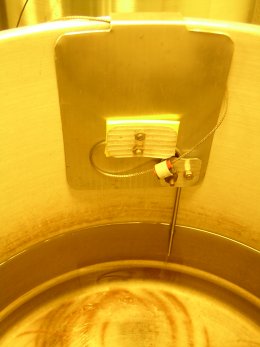Post by baloononPost by JoergPost by baloononThe wine world does a weak job in handling issues of evaluation,
but to be honest I think the beer world tends to be behind even
them. It's sort of funny because there's a strong strain of
engineers and science types in the beer fan world, and they
ought to be more sensitive to a lot of the errors people make
and the way they get made.
I'm guessing that it's because there's a strong desire for
explanation and certainty among many of those types, and
that causes a bias which overrides sound thinking.
Not universally so, of course -- I think the people at brulosophy.com
tend to take the right approach.
I am an engineer myself but would never be a good beer judge. I
have my preferences and there are certain beer styles I like.
So far I've been just a "serial brewer", making two new batches
every time the loads get transferred to secondary. Two brews on
the same day. Other brewers around this neighborhood are a
lot more meticulous and fine-tune just
about everything, spending all day on one batch. I only become
meticulous when it comes to sanitation or equipment like the
wine fridge turned beer fridge. That now has controls inside
that look like they came off an aircraft.
I'm not a hard core controller of variables, but I think there's
something pretty cool about people who go all out and build the
equipment and create the methods for doing that kind of thing. I'd be
really happy if someone gave me a stainless multi-section home brewery
with precise volume and temperature controls, pH measuring tools, and a
well-tuned software suite for easy input and output of weights for
everything from grain to water treatment chemicals.
I just wanted to make my life easier. The fridge was a lot of work,
sometimes hard on my lower back. However, now I do not have to worry
about a hot summer creating trouble for my brews and don't have to run
the pellet stove during winter just for the fermenters anymore. Other
tools are simple, like the meat thermometer that can radio the water or
wort temperature upstairs so I don't have to spend so much time waiting
around. The receiver lets me key in an alert temperature where it will
beep. Other than about $20 all it took was some time at the work bench
to make this:
Loading Image...
Post by baloononThe one thing I find annoying is when people who do this get a false
sense of precision. I think there's a higher degree of variability in
malt, hops and yeast than some acknowledge, and there's often varability
in methods or equipment that doesn't get noticed. Most of all, I think
qualitative judgments are really hard to nail down, and a lot of flaws
creep in due to bad evaluation practices.
I guess the main thing is how well people can separate the results from
the inputs. If the hardware and methods help you enjoy your beer,
you're doing it right -- if all that shrinks the amount of beer you're
enjoying due to hyperanalysis, rigid setting of expectations, and the
like, then you're doing it wrong.
Precision is nowadays often perceived as higher than it really is. For
example, in brewing you need a fairly precise temperature measurement
during mashing and steeping. The newfangled digital thermometers
seemingly show temperatures to a 10th of a degree but that is deceiving.
They are usually operating with a fairly sloppy NTC resistor as the
sensor and can be several degrees Fahrenheit off. So they should be
calibrated at least at the boil temperature for the respective altitude.
Heck, even my hydrometers are off up to 0.003 but that doesn't matter much.
--
Regards, Joerg
http://www.analogconsultants.com/